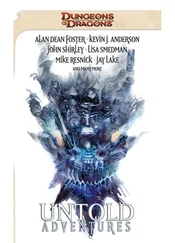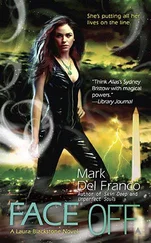David ed. - Face Off (2014) Anthology
Здесь есть возможность читать онлайн «David ed. - Face Off (2014) Anthology» весь текст электронной книги совершенно бесплатно (целиком полную версию без сокращений). В некоторых случаях можно слушать аудио, скачать через торрент в формате fb2 и присутствует краткое содержание. Год выпуска: 2014, ISBN: 2014, Издательство: Simon & Schuster, Жанр: Старинная литература, на английском языке. Описание произведения, (предисловие) а так же отзывы посетителей доступны на портале библиотеки ЛибКат.
- Название:Face Off (2014) Anthology
- Автор:
- Издательство:Simon & Schuster
- Жанр:
- Год:2014
- ISBN:9781476762067
- Рейтинг книги:4 / 5. Голосов: 1
-
Избранное:Добавить в избранное
- Отзывы:
-
Ваша оценка:
- 80
- 1
- 2
- 3
- 4
- 5
Face Off (2014) Anthology: краткое содержание, описание и аннотация
Предлагаем к чтению аннотацию, описание, краткое содержание или предисловие (зависит от того, что написал сам автор книги «Face Off (2014) Anthology»). Если вы не нашли необходимую информацию о книге — напишите в комментариях, мы постараемся отыскать её.
Face Off (2014) Anthology — читать онлайн бесплатно полную книгу (весь текст) целиком
Ниже представлен текст книги, разбитый по страницам. Система сохранения места последней прочитанной страницы, позволяет с удобством читать онлайн бесплатно книгу «Face Off (2014) Anthology», без необходимости каждый раз заново искать на чём Вы остановились. Поставьте закладку, и сможете в любой момент перейти на страницу, на которой закончили чтение.
Интервал:
Закладка:
Bob tells the story of how Slappy was inspired by a 1945 anthology film called Dead of Night . One segment of the movie told the story of a terrifying and murderous ventriloquist’s dummy that eventually took possession of his owner’s mind. Bob saw the film when he was young and it scared the daylights out of him. Interestingly, as a child, Bob owned a Jerry Mahoney dummy of his own. Eventually, he became fascinated by the idea that something so human-looking and seemingly harmless could turn so completely evil.
The idea of pairing the elegant, urbane FBI agent Pendergast against an evil dummy seemed so incongruous—so impossible—that Doug, Lincoln, and Bob were immediately captivated by the challenge. The result is a psychological thriller where both the dummy and Agent Pendergast play against form, assuming roles that familiar readers may find strange and unsettling.
One thing is certain—this story is not intended for children.
Gaslighted
THERE WAS A TAP-TAPPING sound. That was all. Was it a clock? No: it was too loud, too irregular. Was it the creaking of an old house? The ticking of a radiator?
The man listened to the sound. Gradually he became aware of certain things—or rather, the absence of things. The absence of light. Of sensation. Of a name.
That was unusual, was it not? He was a man with no name. He had no memory. He was a tabula rasa, an empty vessel. And yet he sensed that he knew many things. This was a paradox.
The ticking sound grew louder. The man struggled to understand. Sensation began to return. He was blind—hooded. His hands and feet were immobilized. Not bound, but strapped. He was lying on a bed. He tried to move. The restraints were soft, comfortable, and effective.
He was not hungry. He was not tired. He was neither hot nor cold. He was not frightened; he felt calm.
Tap, tap, tap-tap. He listened. A thought came into his head: if he could understand what made that sound, perhaps all else would come back.
He tried to speak, and a sound emerged. The hiss of breath.
The tap-tapping stopped. Silence.
Then he heard a creaking sound. This he recognized: footfalls on a wooden floor. They were growing closer. A hand grasped the hood, and he heard the sound of Velcro parting. The hood was gently removed and he saw a face drawing toward him. He realized, from the movement of air over his scalp, that his own head had been shaved. He had once had hair—at least he knew that much about himself.
And then the face moved into his field of view. The light was dim but he could make out the face quite distinctly. It was a man in his forties, wearing a gray flannel suit. The face was sharp. It had high cheekbones, an aquiline nose. Bony ridges around the eyes gave it a skull-like, asymmetric quality. His hair was ginger-colored and he sported a thick, neatly trimmed beard. But the most startling effect was in his eyes: one was a rich hazel-green, clear and deep, the pupil dilated. The other was a milky blue, opaque, dead, the pupil contracted to a tiny black point.
The sight of the eyes triggered something—something massive. A Niagara of memory came thundering back, all at once, leaving the man on the bed almost paralyzed with the crushing weight of it. He stared at the man bending over him.
“Diogenes,” he whispered.
“Aloysius,” the man said, his brow furrowed with concern. “Thank God you’re awake.”
Aloysius. Aloysius Pendergast. That was his name: Special Agent Aloysius Pendergast.
“You’re dead,” he said. “This is a dream.”
“No,” said Diogenes, almost tenderly. “You’ve awakened from a dream. Now you’re on the road to healing—at long last.” As he said this, he leaned over and unstrapped his brother’s wrists from their leather restraints. He leaned over to fluff and adjust Pendergast’s pillow, smooth the sheets. “You can sit up if you feel able.”
“You’ve done this to me. This is one of your schemes.”
“Come now, please. Not this again.”
Out of the corner of his eye, Aloysius saw movement. He turned his head. The door to his room had opened and a woman was walking in. It was a woman he recognized instantly: Helen Esterhazy, his wife.
His dead wife.
He stared in horror as she approached. She reached out to take his hand and he pulled it away. “This is a hallucination,” he said.
“This is very real,” she said gently.
“Impossible.”
She sat down on the edge of the bed. “We’re alive—both of us. We’re here to assist in your recovery.”
Aloysius Pendergast mutely shook his head. If this wasn’t a dream, then he must be under the influence of drugs. He would not cooperate in whatever was happening to him, whatever they were doing. He closed his eyes and tried to remember how he had gotten to this place; what events led up to this . . . imprisonment. But his short-term memory was a blank. What, then, was his last memory? He struggled to find it. But there was nothing—just a long, black road going back as far as his memory would travel.
“We’re here to help you,” Diogenes added.
Pendergast opened his eyes and stared into the heterochromic eyes of his brother. “You? Help me? You’re my worst enemy. And besides, you’re not here. You’re dead.”
How did he know his brother was dead? If he couldn’t remember, how could he be sure? And yet, he was sure . . . wasn’t he?
“No, Aloysius,” Diogenes said with a smile. “That’s all part of your fantasy. Your illness. Think back on your life, or what you believe has been your life. What is your profession?”
Pendergast hesitated. “I’m . . . an FBI agent.”
Another gentle smile. “Okay. Now think about that. We know all about this ‘life’ of yours. You’ve spent the last months talking about it with Dr. Augustine. We’ve heard all about the insane exploits, the wild encounters. We’ve heard about all the people you’ve supposedly killed, about your narrow escapes. We’ve heard about genetic monsters eating people’s brains and infantile serial killers living in caves. We’ve heard about underground mutant armies and Nazi breeding programs. We’ve heard about a certain young lady who is a hundred and forty years old . . . That, Aloysius, is the fantasy world you’re finally awakening from. We’re real; that crazy world is not.”
As Diogenes rattled these items off, each one suddenly resonated in Pendergast’s memory, bursting like a firework. “No,” he said. “It’s exactly the opposite. You’re twisting everything. You’re not real; that other world is real.”
Helen leaned over, her violet eyes looking into his. “Do you really think the FBI, the buttoned-down FBI, would allow one of its agents to run amok, killing people willy-nilly?” She spoke calmly, her voice cool and rational. “How could all that be real? Think back on these so-called adventures of yours. Could one man, one person, really experience all that and live through it?”
Diogenes spoke again, his buttery Southern accent like a balm. “You simply couldn’t have survived all the adventures you’ve told Dr. Augustine about. Don’t you see? Your memories are lying to you. Not us.”
“Then why am I restrained? Why the hood?”
“When the breakthrough came,” said Diogenes, “when Dr. Augustine finally breached the hard shell of your fantasies, you became . . . disturbed. We had no choice but to have you restrained, for your own safety. They hooded you because the light was bothering you. You’ve always had an aversion to light, ever since you were a child.”
“And why the shaved head?”
“That’s necessary for the treatment, the placement of electrodes. Electrical stimulation of the brain.”
“Electrodes? What in God’s name is being done to me?”
Читать дальшеИнтервал:
Закладка:
Похожие книги на «Face Off (2014) Anthology»
Представляем Вашему вниманию похожие книги на «Face Off (2014) Anthology» списком для выбора. Мы отобрали схожую по названию и смыслу литературу в надежде предоставить читателям больше вариантов отыскать новые, интересные, ещё непрочитанные произведения.
Обсуждение, отзывы о книге «Face Off (2014) Anthology» и просто собственные мнения читателей. Оставьте ваши комментарии, напишите, что Вы думаете о произведении, его смысле или главных героях. Укажите что конкретно понравилось, а что нет, и почему Вы так считаете.












